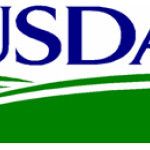- Industri: Government
- Number of terms: 41534
- Number of blossaries: 0
- Company Profile:
A descriptive term used by some for seeds that have been genetically engineered to produce a crop whose first generation produces sterile seeds, thus preventing a second generation from being grown from seeds saved from the first. This technology (currently 3 to 5 years from commercial application) was developed under a Cooperative Research and Development Agreement between the Agricultural Research Service and a private seed company. Supporters of the technology state that it is a way to build patent protection directly into high-value, genetically engineered crop varieties and thus recoup high research investment costs. Opponents are concerned that the technology could have harmful environmental and public health effects and argue that it would have an inequitable impact on farmers in developing countries who rely on saved seed for replanting and for developing locally adapted varieties.
Industry:Agriculture
A central site, often in a metropolitan area, that serves as an assembly and trading place for agricultural commodities. Terminal markets are usually at or near major transportation hubs. A metropolitan market that handles all agricultural commodities.
Industry:Agriculture
A large elevator (warehouse) facility with the capacity to transfer grain to rail cars, barges, or ships for transport to domestic or foreign markets. Terminal elevator markets are used as base locations for posted county prices.
Industry:Agriculture
A chemical that causes nonhereditary birth defects in a developing fetus. Teratogencity is taken into account in assessing the toxicity of pesticides and other chemicals. Both level and timing of exposure to teratogens determine health effects.
Industry:Agriculture
As a verb, tender announces the intention of delivering a notice or an actual commodity; i.e., XYZ Grain Growers, Inc., tenders six cars to North Pacific at the time of shipment for application on an open sales contract. As a noun, tender normally denotes a notice of an intent to buy. The tender usually spells out in detail quantities to be purchased, desired quality, time of shipment, country of origin, and all inspection, weighing, and payment terms. Overseas buyers usually issue tenders to ensure the maximum competition for a given piece of business. Also, the action of receiving offers, determining the best one, deciding whether, and how much, to buy, and announcing the awards of contracts. Ordinarily, a buyer reserves the right to reject any or all of the offers submitted.
Industry:Agriculture
A program that evolved out of a surplus commodity donation efforts begun by the USDA in late 1981 to dispose of surplus foods (especially cheese) held by the Commodity Credit Corporation. This program was explicitly authorized by the Congress in 1983 when funding was provided to assist states with the costs involved in storing and distributing the commodities. The program originally was entitled the Temporary Emergency Food Assistance Program when authorized under the Temporary Emergency Food Assistance Act of 1983. The word "temporary" was dropped from statute and program title in the FACT Act of 1990. The acronym EFAP now is used for this program.
Industry:Agriculture
P.L. 98-8 (March 24, 1983) was a supplemental appropriations act for FY1983 that among other things explicitly authorized a discretionary commodity donation effort begun in 1981 by the USDA. The initial effort was limited to disposal of excess commodities held by the Commodity Credit Corporation by donating them to states. This law also authorized funding to help states and local emergency feeding organizations with the storage and distribution costs of handling the commodities. This is the origin of the current Emergency Food Assistance Act of 1983 (P.L. 98-92) as amended.
Industry:Agriculture
A category of nontariff barriers to trade, TBTs are the widely divergent measures that countries use to regulate markets, protect their consumers, or preserve their natural resources (among other objectives), but they also can be used (or perceived by foreign countries) to discriminate against imports in order to protect domestic industries. TBTs with the greatest impact on agriculture are the various sanitary and phytosanitary (SPS) measures designed to protect humans, animals, and plants, from diseases, pests, and other contaminants. Examples of TBTs, other than SPS measures, are rules for product weight, size, or packaging; ingredient or identity standards; mandatory labeling; shelf-life restrictions; and import testing and certification procedures. The broad term "technical barriers to trade" is frequently applied to all of these types of measures, even where they might be legitimate and consistent with bilateral or multilateral trading rules. However, trade experts widely view TBTs as having great potential for being misused by importing countries as nontransparent (disguised or unclear) obstacles to trade. (See transparency.)
Industry:Agriculture
Tilletia controversa kuhnis a wheat fungus present in the Pacific Northwest. It takes on policy significance because China applies a zero tolerance on TCK spores resulting in a ban since 1974 on shipments from the Pacific Northwest. Until the summer of 1996, China accepted shipments of U.S. wheat from the Gulf coast, even if they contained traces of TCK and negotiated price discounts with the shippers to cover the cost of decontamination before the affected wheat was unloaded. But in June 1996, China rejected cargoes of U.S. wheat with traces of TCK. China and the United States since have exchanged scientific teams as part of an effort to resolve the problem.
Industry:Agriculture
Coordinated effort by the Food and Consumer Service to implement the school meals initiative for healthy children.
Industry:Agriculture
